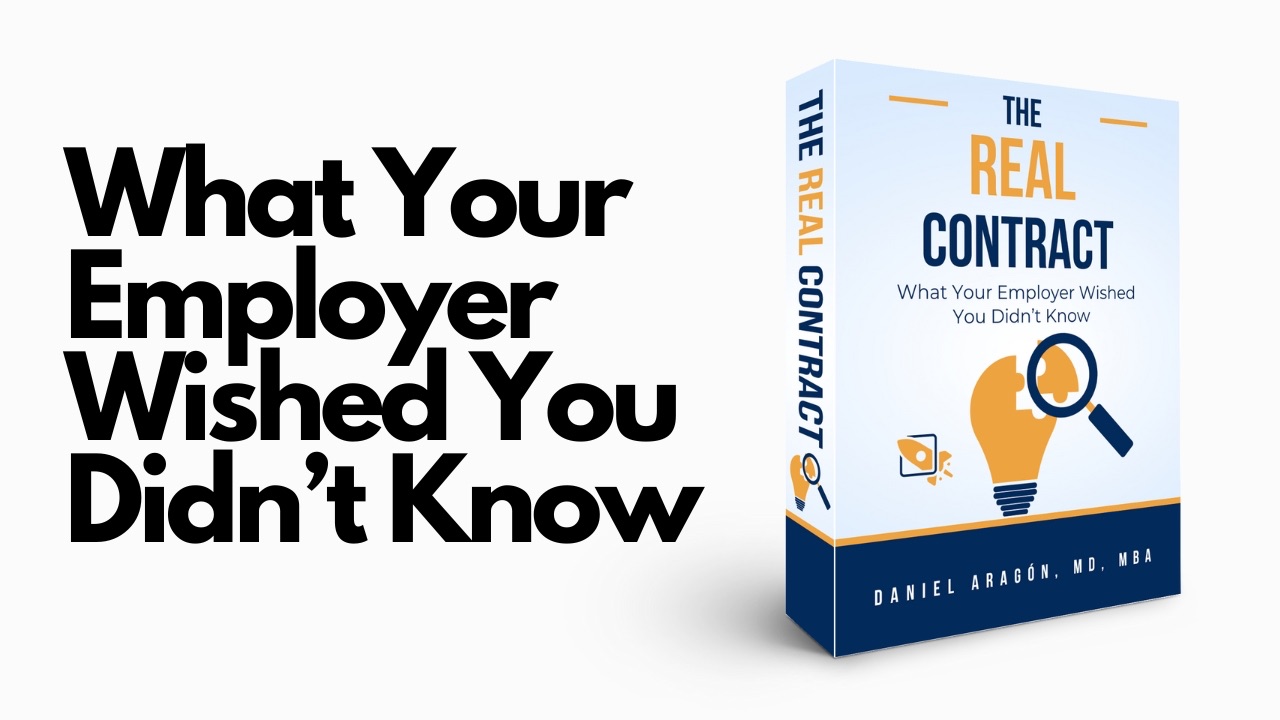
The Term of the Contract in Physician Contracts
Key Takeaways
✅ Know your contract's end date, employers conveniently forget
✅ Understand how automatic renewal clauses work, they can trap you if you're planning to leave
✅ Be aware that even with a defined contract term, you can often still be terminated on short notice
What Does 'Term of Contract' Really Mean?
The term is the official length of your contract.
Seems straightforward, your contract lasts one or two years, right? Well, not always.
Contracts may have:
- Fixed terms (e.g., 1 year or 2 years)
- Indefinite terms (ongoing until someone ends it)
- Evergreen clauses (automatic renewal unless you cancel in time)
Evergreen clauses are sneaky. If you miss the cancellation window, often 60 or 90 days before expiration, your contract renews automatically.
Wait… My Contract Auto-Renews?
Yup, and it’s easy to miss. Especially when you're buried in clinical work.
Many physician contracts include an evergreen clause. This means your contract renews automatically unless you or your employer decide to end it.
- Typical wording says your contract will renew unless notice is given 60-90 days before the expiration date
- Forget that date, and suddenly you're stuck in another full contract cycle
What’s the Risk of Automatic Renewal?
Ever had a subscription renew because you forgot to cancel? Same idea.
Employers often (and conveniently) forget about the contract’s expiration.
Tip: Mark both your contract’s expiration date and the automatic renewal deadline on your calendar.
Even if you don't forget, when it comes to renegotiation, your employer may want to drag their feet allowing time to pass and the auto-renewal to kick in.
What If Your Contract Has No End Date?
Some contracts just run indefinitely. That sounds flexible, but it usually comes with a catch:
- Your employer may still have the right to terminate you with little notice, sometimes just 30 to 60 days
- An open-ended contract gives you less certainty about your job's stability
What Happens If You Forget Your Contract Expired?
Honestly, your employer might forget too. That sounds wild, but it happens all the time. Suddenly, you’re working without a valid contract. No clear terms. No protection.
To avoid this:
- Add contract dates to your calendar, including renewal deadlines
- Follow up early if you plan to renegotiate or leave
Can They Fire You Before the Term Ends?
Yes. Even with a stated contract term, most employers include a termination without cause clause. This often allows them to end your contract with only 30, 60, or 90 days notice.
That’s frustrating, but it also protects you — if you decide the job isn’t working, you can leave just as easily.
Ask your employer about:
- Notice periods: How much time will you get if they decide to let you go?
- Termination without cause: Can they end your contract for no stated reason?
- Severance pay: Is there compensation if they terminate early?
Questions to Ask About Your Contract’s Term
Before signing anything, ask:
- What’s the actual contract term?
- Is there an automatic renewal clause?
- If so, when’s the deadline to cancel the renewal?
- When does automatic renewal kick in?
- If I want out early, how much notice must I give?
- Can the employer terminate me without cause, and if so, how much notice must they give?
Be Proactive with Your Contract Dates
Your contract’s term is the timeline that affects your job stability and career decisions.
The Real Contract Course is designed to help you spot these details before you sign. In this 2-hour video, you’ll learn how to:
✅ Identify confusing contract language.
✅ Understand termination clauses and deadlines.
✅ Ask the right questions before committing to a job.
By taking the course before meeting with your lawyer, you’ll make better use of their time, and yours, while making sure your contract aligns with your goals.






